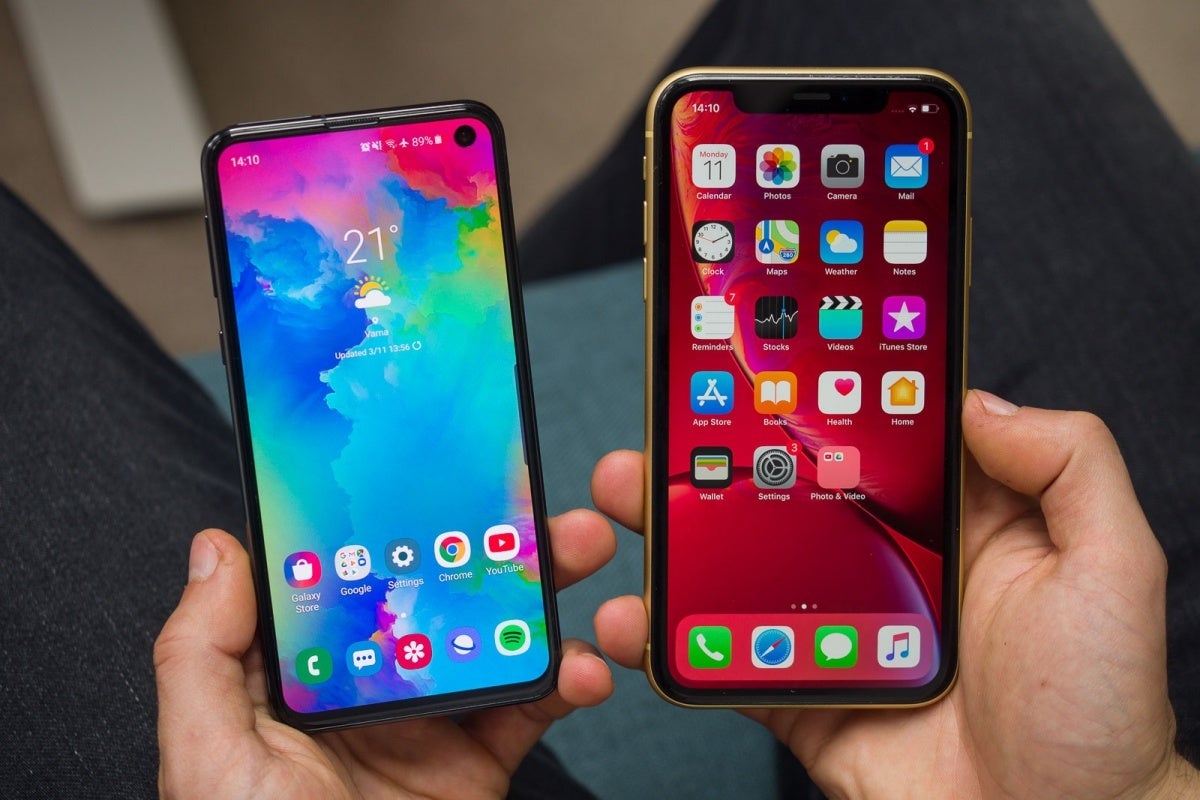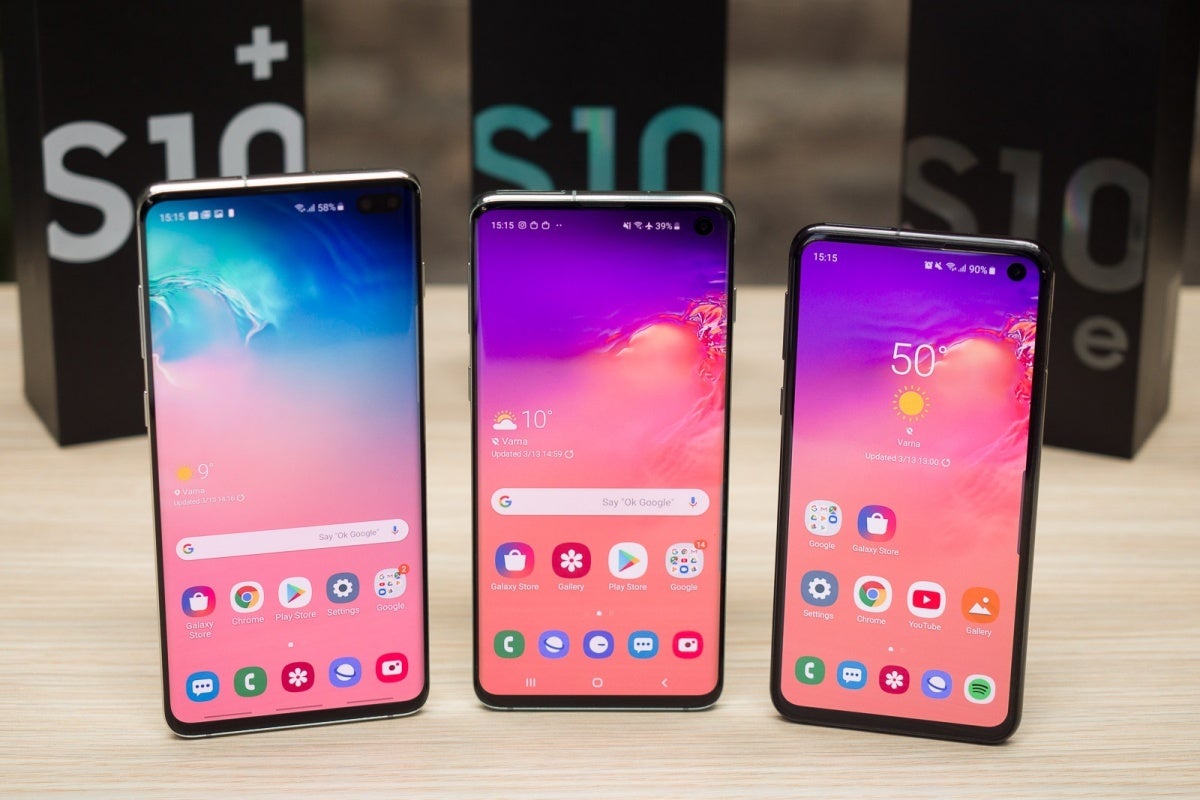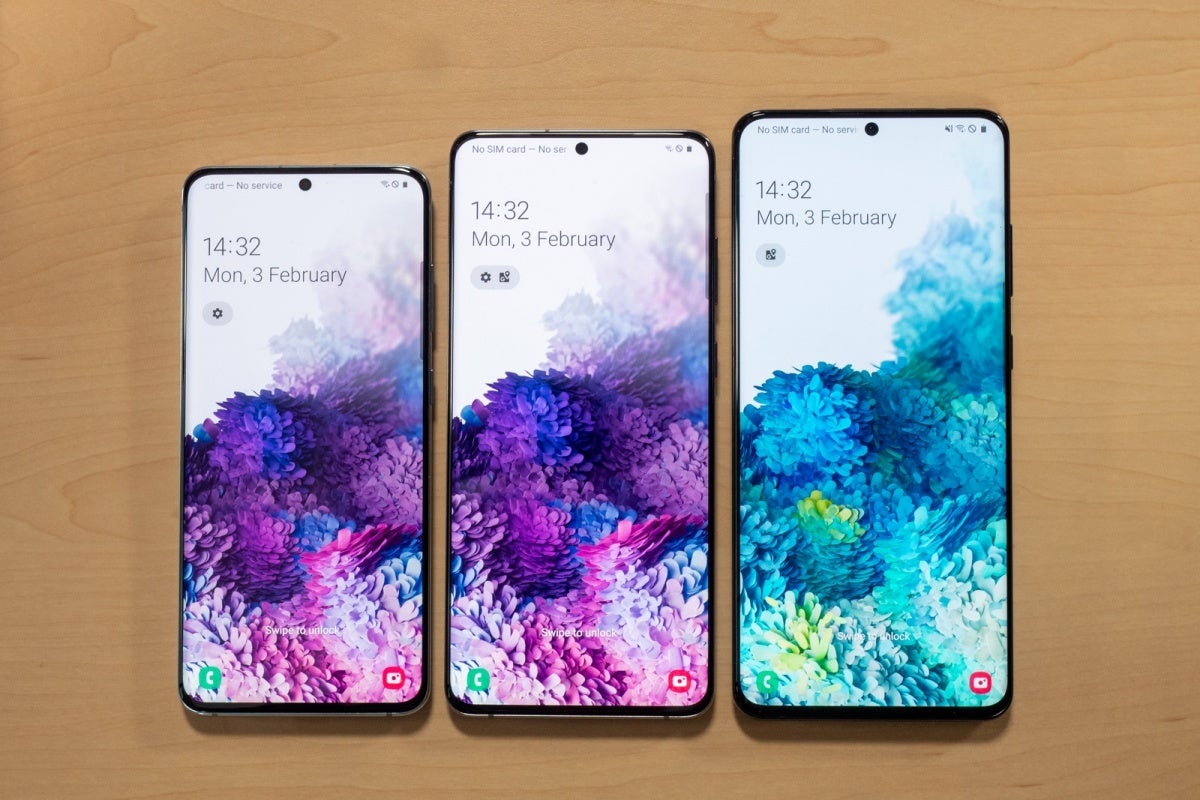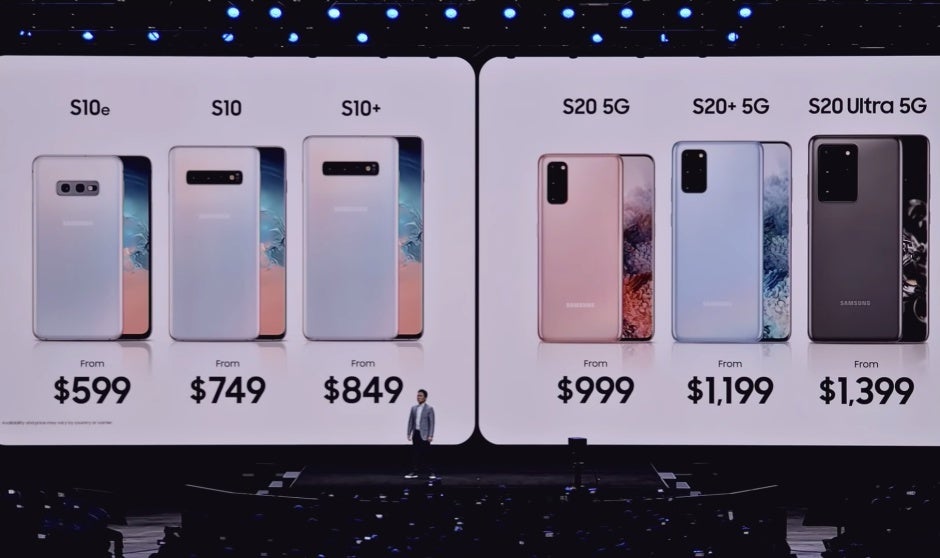Samsung is becoming more and more like Apple, and that's... perfectly okay
This article may contain personal views and opinion from the author.

Galaxy S10e (left), iPhone XR (right)
Samsung had a lot of cool stuff to unveil at its glamorous Unpacked shindig in San Francisco last week. Two "regular" phones with premium designs and great specifications, an Ultra handset further pushing the envelope in terms of camera capabilities, screen size, battery size, memory, and... retail pricing, a new type of foldable handset debuting a major technological breakthrough (that arguably still needs work), a luxury edition of said foldable device, and last but not least, the true wireless earbuds with the world's best battery life.
Still, if I had to choose my favorite announcement made during an event that ran for over an hour, I'd definitely go with something that took mere seconds and seemed to go almost unnoticed by attendees. You can find the exact moment I'm talking about at the 55:53 mark of the video embedded below. Did you catch it? If you didn't, we already wrote a whole article about it, but I feel like this is a move worth discussing some more for a few reasons.

Basically, Samsung took a page straight out of Apple's playbook by permanently discounting the Galaxy S10, S10+, and S10e while launching the Galaxy S20, S20+, and S20 Ultra. Obviously, the Cupertino-based tech giant did not invent or trademark this strategy, but it's hard to overlook the resemblance between the current iPhone lineup and the Galaxy S-series devices officially sold by their manufacturers.
No one's copying anyone, so just chill out
I felt the need to put that in a subheader because I could almost hear the hateful comments being written. Am I an Apple "shill?" You'll never know. But for what it's worth, I'm not accusing Samsung of stealing some grand, original idea here. Far from it. In fact, I believe it's high time we stopped shaming these companies for simply doing what's essentially universally acceptable in so many other industries.
If "Joker" can earn over $1 billion at the global box office, as well as 11 Oscar nominations, despite borrowing heavily from Scorsese movies, I'm pretty sure we can find it in our hearts to "forgive" the world's largest smartphone vendors for deriving inspiration from one another.

Galaxy S10+, S10, S10e (from left to right)
That being said, what Samsung is doing with the Galaxy S10 family is clearly vastly different from what the company has historically done in the wake of its flagship releases. For crying out loud, the Galaxy Note 8 was still (technically) priced at $900 on the eve of the Note 10's commercial debut. While it's certainly not unusual to see both new and old Galaxy high-enders offered at substantial discounts from time to time, an official and permanent price cut is something else entirely.
The mere mention of the S10 lineup during the S20 series launch event was meant to boost its appeal, suggesting this is far more important for Samsung than the Galaxy S9 duo this time last year. Similarly, the iPhone XR continues to sell like hotcakes around the world, and it's hard not to think that might have had a crucial contribution to this shift in Samsung strategy.
The best of both worlds?
Since we've established there's absolutely nothing wrong with companies adopting and refining general marketing concepts and strategies from their rivals (as long as we're not talking about shamelessly cloning super-popular products), it's worth pointing out and remembering the iPhone XR itself debuted as an answer to a long line of value flagships from various Android device manufacturers.
In other words, Apple followed the competition's suit with 2018's XR and last year's even cheaper iPhone 11, and now Samsung is pulling a classic Apple by pricing the Galaxy S20 family at a rather prohibitive $1000 and up. That's pretty ironic, and while it's far too early to know if the absence of a budget-friendly "e" model from the S20 lineup will prove a wise business decision on Samsung's part, you should note the "regular" S10 version has become only 50 bucks costlier than the non-Pro iPhone 11.

Galaxy S20, S20+, S20 Ultra (from left to right)
Meanwhile, the Galaxy S10e is exactly as affordable as the iPhone XR, and mind you, these are recommended prices we're talking about here. Granted, we've seen the iPhone 11 and iPhone XR heavily discounted a number of times in recent months by major carriers and authorized third-party retailers, but Samsung often outdoes its own partners. Case in point, that excellent S10 series deal sweetener offered on the very heels of this permanent outright price reduction.
Sure, I still personally believe a Galaxy S20e priced at $750 or $800 would have been nice, but being able to choose between a Galaxy S10e and Galaxy S10 (normally) available for $599 and $749 respectively might be even better for Android power users on relatively tight budgets. The $749 S10 and $849 S10+, by the way, are where Samsung really managed to make this Apple-inspired strategy its own, covering a market segment left unoccupied by Apple's decision to officially discontinue the iPhone XS and XS Max after unveiling the 11, 11 Pro, and 11 Pro Max.

Bottom line, Samsung's combined high-end portfolio of 2019 and 2020 has an option for every budget, and bearing that in mind, you might find the $1,399 price tag of the Galaxy S20 Ultra a little easier to swallow. Oh, and in case you're wondering, I think the S10e, S10, and S10+ are still among the world's greatest phones, and (almost) anyone would be lucky to own any of the three super-premium and exceptionally powerful 2019 models.
Follow us on Google News



















Things that are NOT allowed:
To help keep our community safe and free from spam, we apply temporary limits to newly created accounts: